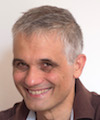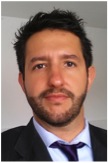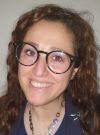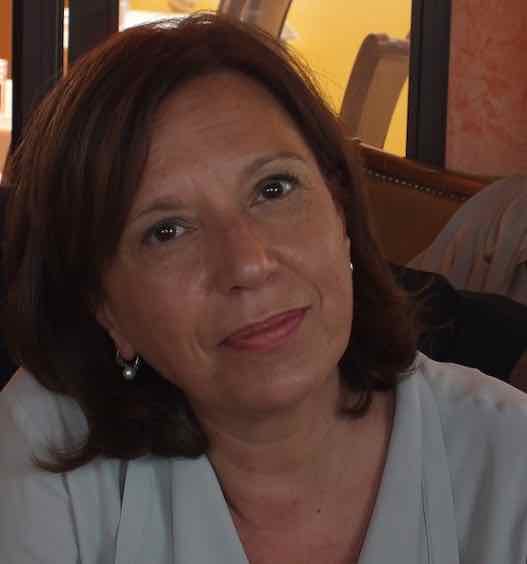Studying at the University of Verona
Academic calendar
The academic calendar shows the deadlines and scheduled events that are relevant to students, teaching and technical-administrative staff of the University. Public holidays and University closures are also indicated. The academic year normally begins on 1 October each year and ends on 30 September of the following year.
Course calendar
The Academic Calendar sets out the degree programme lecture and exam timetables, as well as the relevant university closure dates..
| Period | From | To |
|---|---|---|
| MED ING annuale | Oct 2, 2024 | Sep 30, 2025 |
| MED ING 1° semestre | Oct 2, 2024 | Dec 20, 2024 |
| MED ING 2° semestre | Jan 2, 2025 | Sep 30, 2025 |
| Period | From | To |
|---|---|---|
| Tutti i Santi | Nov 1, 2024 | Nov 1, 2024 |
Exam calendar
To view all the exam sessions available, please use the Exam dashboard on ESSE3. If you forgot your login details or have problems logging in, please contact the relevant IT HelpDesk, or check the login details recovery web page.
Should you have any doubts or questions, please check the Enrollment FAQs
Academic staff
Study Plan
The Study Plan includes all modules, teaching and learning activities that each student will need to undertake during their time at the University.
Please select your Study Plan based on your enrollment year.
1° Year
| Modules | Credits | TAF | SSD |
|---|
2° Year It will be activated in the A.Y. 2025/2026
| Modules | Credits | TAF | SSD |
|---|
3° Year It will be activated in the A.Y. 2026/2027
| Modules | Credits | TAF | SSD |
|---|
4° Year It will be activated in the A.Y. 2027/2028
| Modules | Credits | TAF | SSD |
|---|
5° Year It will be activated in the A.Y. 2028/2029
| Modules | Credits | TAF | SSD |
|---|
6° Year It will be activated in the A.Y. 2029/2030
| Modules | Credits | TAF | SSD |
|---|
| Modules | Credits | TAF | SSD |
|---|
| Modules | Credits | TAF | SSD |
|---|
| Modules | Credits | TAF | SSD |
|---|
| Modules | Credits | TAF | SSD |
|---|
| Modules | Credits | TAF | SSD |
|---|
| Modules | Credits | TAF | SSD |
|---|
Legend | Type of training activity (TTA)
TAF (Type of Educational Activity) All courses and activities are classified into different types of educational activities, indicated by a letter.
General Pathology (It will be activated in the A.Y. 2026/2027)
Teaching code
4S012571
Credits
17
Scientific Disciplinary Sector (SSD)
-
Learning objectives
The main tasks of the course is to illustrate the molecular mechanisms responsible for cell and tissue damage, as well as those involved in host responses to pathogen invasion and in repair.
Objectives of the course of General Pathology. The aim of this course is to provide the students with the molecular mechanisms underlying pathological processes concerning essential cell and tissue functions, and the consequent injury-induced tissue repair. The course addresses classical examples of molecular alterations affecting subcellular organelles, cells and tissues. Additionally, complex alterations occurring at the organism level (aging, diabetes, steatosis) are described. In the context of cell damage, particular attention is given to alterations of signal transduction and cell transformation. This latter phenomenon is addressed in the more general context of cancer cell biology and consequences of tumor growth at the organism level. Mechanisms of host defenses against pathogens, and reaction to tissue injury are described in great detail, both in terms of cells involved and molecular mechanisms. Acute and chronic inflammation are addressed in the context of their causes, their cellular and molecular mechanisms, and their interaction with the immune response. Knowledge on the most modern technologies and their utilization in basic and clinical research will be also given.
PATHOPHYSIOLOGY MODULE
The aim of the pathophysiology course is to provide students with critical knowledge and initial skills regarding:
- The pathophysiological mechanisms responsible for the main alterations of the organism's homeostatic systems;
- The compensatory mechanisms activated following these alterations;
- How these compensatory mechanisms themselves can constitute pathophysiological mechanisms of disease.
The course aims to transmit to students the ability to apply pathophysiological reasoning to every disease and clinical syndrome, understanding their etiopathogenesis, clinical presentation, and consequences. In this way, pathophysiology can also provide basic knowledge for a full understanding of medical semiology, internal medicine, and pharmacology.
In particular, the Clinical Pathophysiology Module aims to thoroughly examine the pathophysiological mechanisms responsible for the main alterations:
- Hydro-electrolytic balance;
- Acid-base balance;
- Renal function;
- Glandular function;
- Cardiac function;
- Regulation of vascular tone and blood pressure homeostasis;
- Respiratory function;
- Hepatic function;
- Hemostasis and thrombosis;
- Formation and propagation of cardiac electrical impulse;
- Intestinal absorption of macro and micronutrients.
BLSD DRILLS
The objectives of the BLSD module are:
- knowledge of the epidemiology of out-of-hospital cardiac arrest and characteristics of rescue by medical and lay personnel
- learning theoretical concepts of basic cardiopulmonary resuscitation in the non-trauma setting in adults and children
- learning how to use the semi-automatic defibrillator
- techniques of airway destruction in the adult and child.
EXERCISES (Microscope)
The objective of the exercise is to learn to recognize under the microscope samples of pathological tissues derived from inflammatory, degenerative, and neoplastic diseases.
EXERCISES (MANNEQUINS)
The exercises with mannequins in the laboratory aim primarily at acquiring basic knowledge regarding medical procedures such as venipuncture, rectal examination, and urinary catheter placement. Such knowledge is essential for students starting their rotations in general medicine wards. In addition to these procedures, exercises on the use of the otoscope and ophthalmoscope are included, with the aim of providing useful basic knowledge for approaching general medicine.
Examination Methods
Oral exam, in presence. In general, the student will be examined on various topics of General Pathology and Pathophysiology. A grade will be assigned for each subject, and these marks will be used to compute the arithmetic mean for determining the final score.
Evaluation criteria
The test ascertains the level of knowledge of the theoretical contents and the ability to use language in describing the contents of the program. The final grade will derive by the weighted average of the grades given in response to the different questions
Free choice courses
Modules not yet included
Career prospects
Module/Programme news
News for students
There you will find information, resources and services useful during your time at the University (Student’s exam record, your study plan on ESSE3, Distance Learning courses, university email account, office forms, administrative procedures, etc.). You can log into MyUnivr with your GIA login details: only in this way will you be able to receive notification of all the notices from your teachers and your secretariat via email and soon also via the Univr app.

 giuseppe.bertini@univr.it
giuseppe.bertini@univr.it
 045-802-7682
045-802-7682








